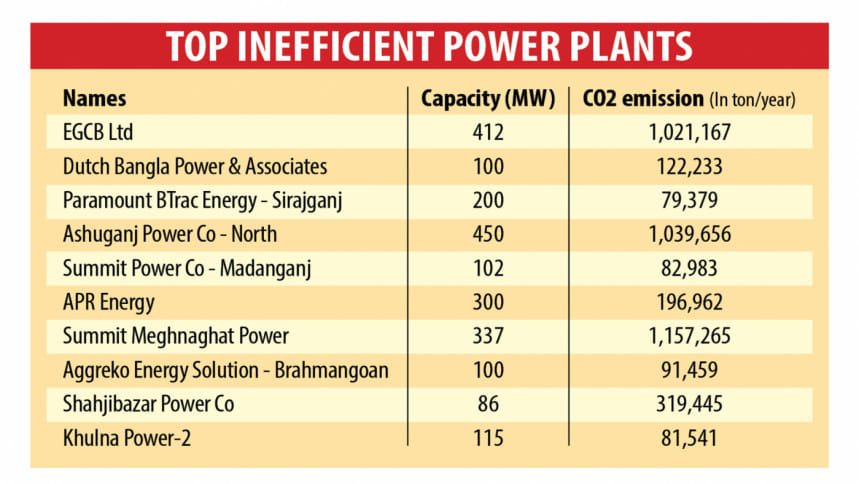CPD calls for phasing out inefficient power plants

The Centre for Policy Dialogue yesterday urged the interim government to phase out all inefficient power plants as early as possible.
During a media briefing, titled "Power and Energy Sector Reform Agenda for the Interim Government", at its office, the CPD outlined a comprehensive operational reform strategy for the power sector.
The think-tank asked the government to revise power purchase contracts and incorporate the "no electricity no pay" clause to lessen the burden of capacity payments.
"The government paid a total of around Tk 105,000 crore in the last 14 years as capacity payments to power plant owners up to August 2023," said Khondaker Golam Moazzem, research director at the CPD.
He provided a list of 28 inefficient power plants -- which have a total capacity of 3,655 MW -- based on net electricity generation, generation cost and carbon dioxide emissions, which can be phased out after their contracts end by 2030.
Most of them are quick rental power plants that the previous government promised to phase out. But it failed to do so.
All 16 quick rental power plants were supposed to be phased out by 2023, but as many as 13 are still operational. Of them, two have been getting capacity payment facilities and 11 are operating under the 'no electricity no pay' provision, Moazzem said.
According to the CPD, there is an over-generation capacity of 41 percent at present, significantly higher than the maximum required reserve margin of 30 percent.
"There is a scope to reduce the capacity of 6,677MW without having any major adverse effect on the electricity supply in the country," Moazzem said, adding the previous government did not maintain the retirement schedule of power plants.
Despite providing high subsidies and upward tariff revision, the Bangladesh Power Development Board has still been unable to come out of losses.
He added that no further power tariff revision should be made in the name of subsidy adjustments.
"The previous government had drawn up a plan to increase the price of electricity four times a year for the next three years to withdraw all subsidies in the power sector. They raised the price in February, but through such an adjustment, the burden is fully passed to the consumers -- households, agriculture, industry, businesses, services and other economic activities."
The CPD termed the automated fuel pricing formula, launched in March this year, as unclear. "The price calculation mechanism of petroleum is unclear and there are a few hidden charges without any proper justification."
As the procurement process was non-competitive and confidential, fairness could not be ensured regarding issues such as the determination of power purchase rate and capacity payment. It also led to extensions of contracts with inefficient power plants, it said.
So, the CPD asked the government to review the procurement and bidding process of the power plants.

 For all latest news, follow The Daily Star's Google News channel.
For all latest news, follow The Daily Star's Google News channel. 








Comments